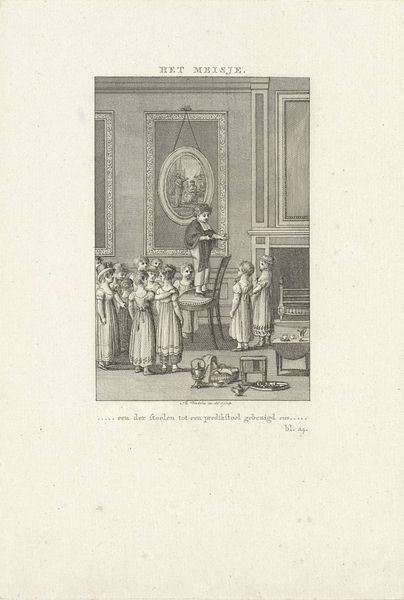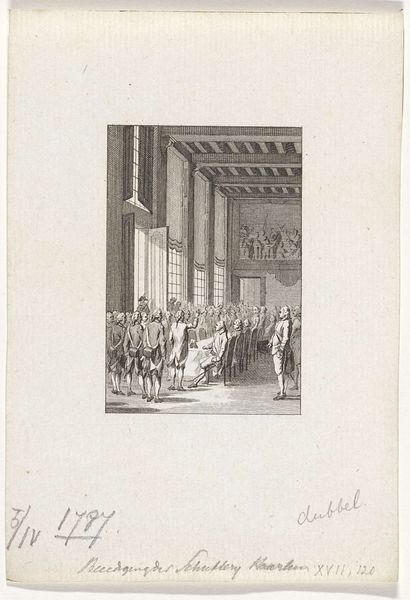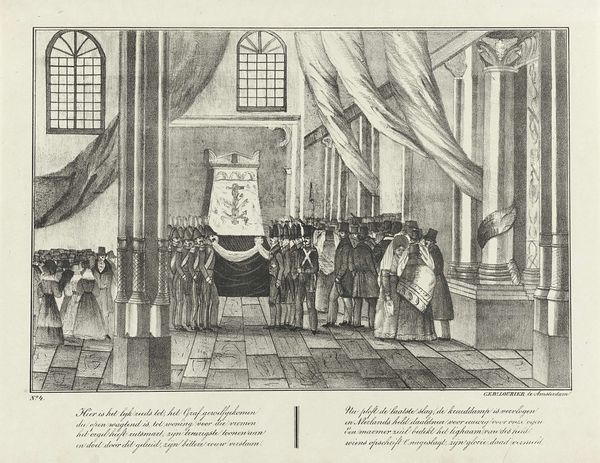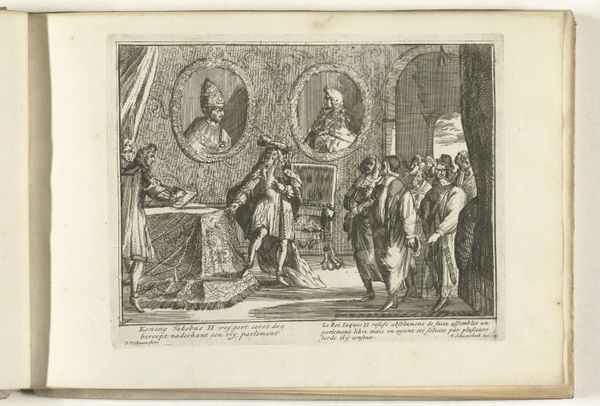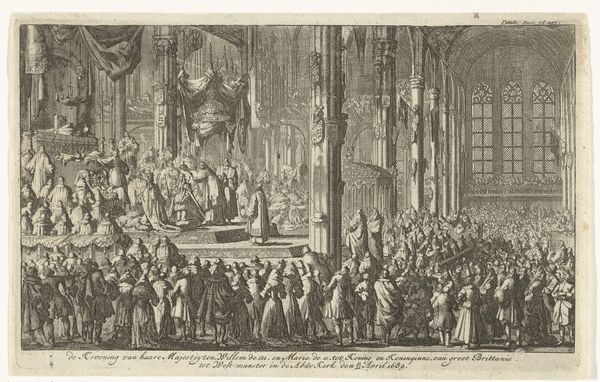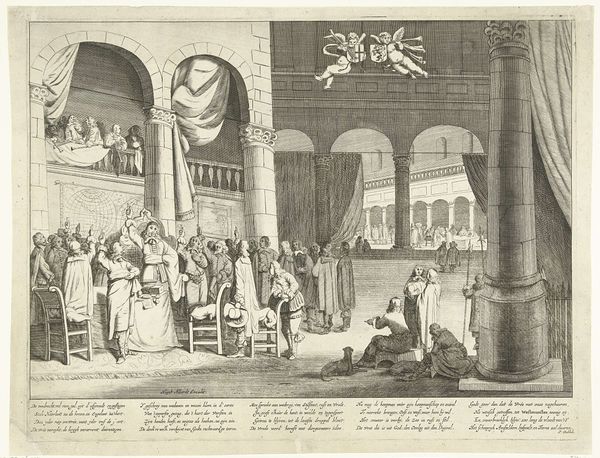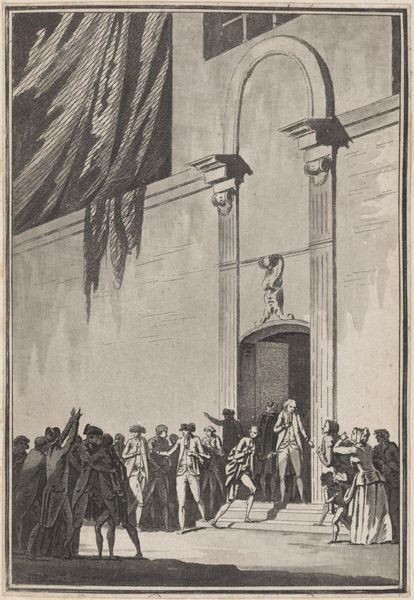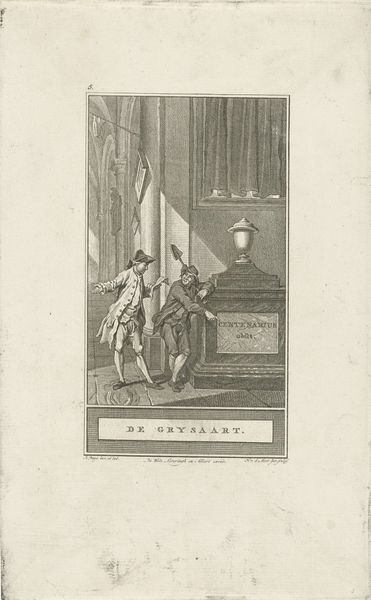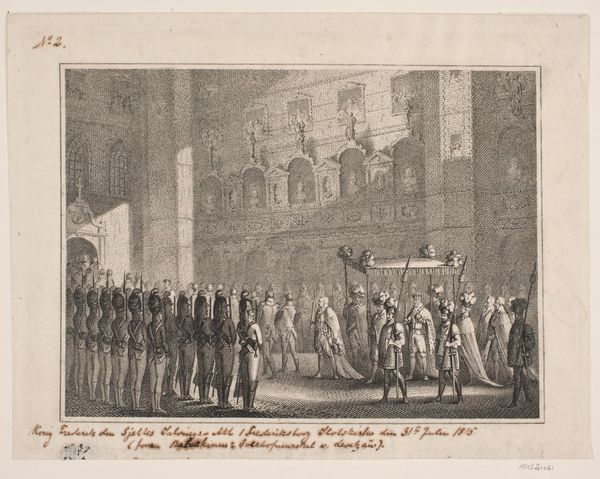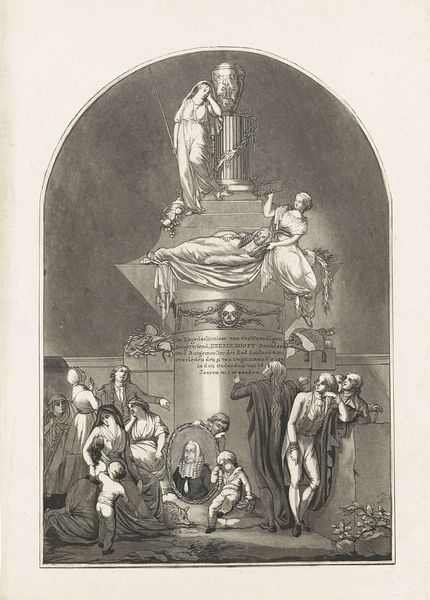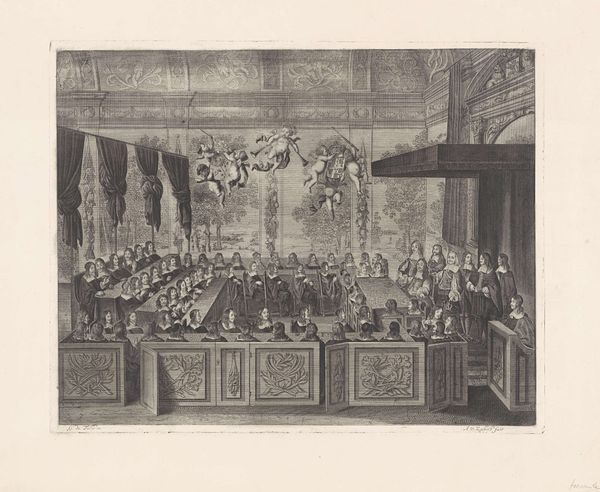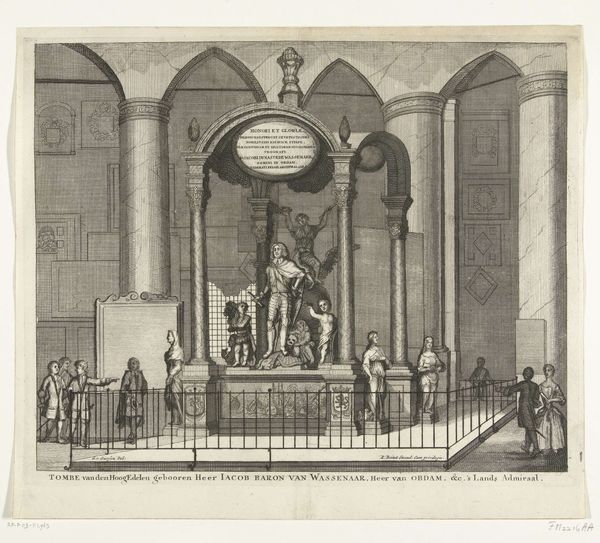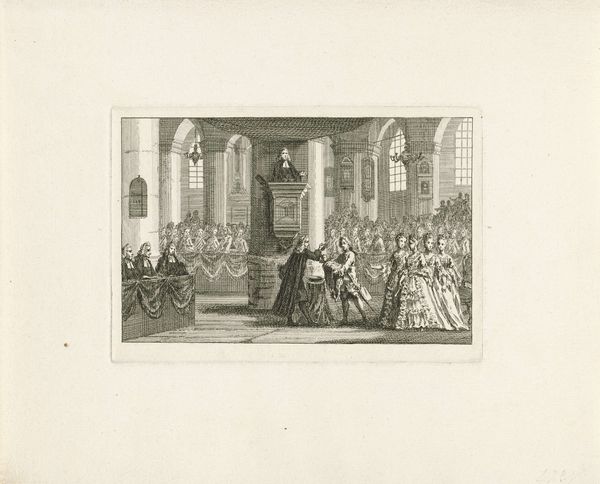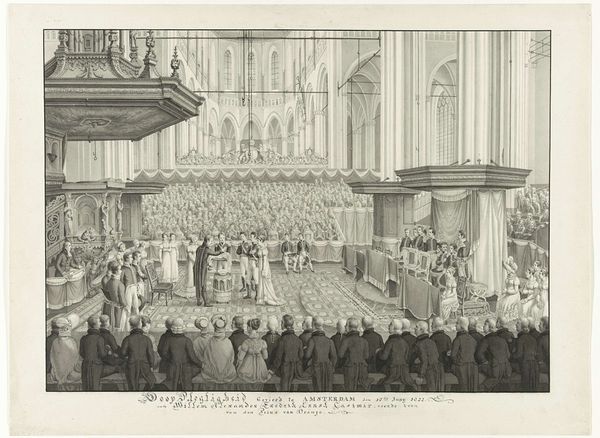
Dimensions: height 200 mm, width 230 mm
Copyright: Rijks Museum: Open Domain
This print, made in 1786 by an anonymous artist, satirizes the Leiden preacher F.A. van der Kemp. Notice the pulpit, adorned with occult symbols and the inscription "T. Hobbes Leviathan," a clear reference to the philosopher Thomas Hobbes and his treatise on the social contract, hinting at the preacher's controversial views. The presence of soldiers with bayonets fixed and a crowd of caricatured figures evoke a sense of unrest. The depiction of a clergyman in military attire is an ironic twist; an appeal to the archetype of the "miles christianus", who in his earthly form defends the church and the faith. Consider the evolution of the "ecclesia militans" motif through the ages; from early Christian art portraying saints as spiritual warriors to the Reformation-era pamphlets depicting religious figures as soldiers of God. These symbols tap into a deep, collective memory, engaging viewers on a subconscious level and revealing the cyclical nature of cultural and political expression. Such symbols, reborn in new forms across time, attest to the enduring power of the image.
Comments
No comments
Be the first to comment and join the conversation on the ultimate creative platform.
